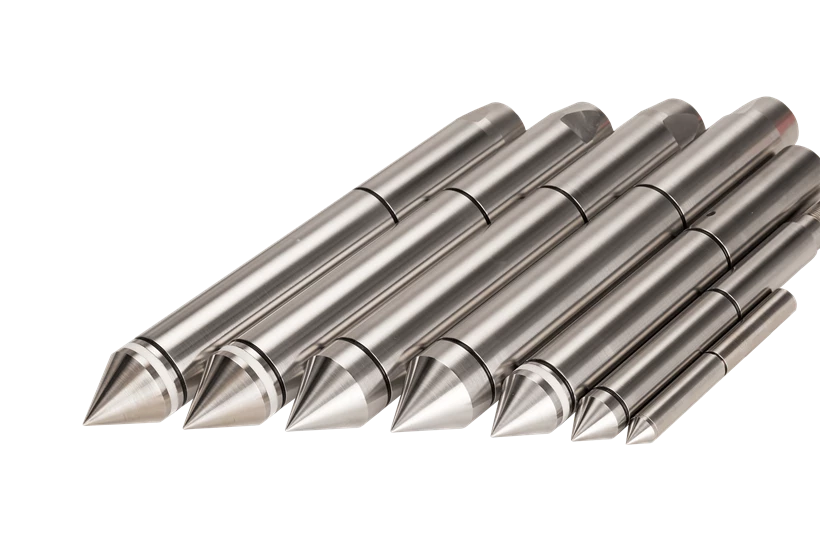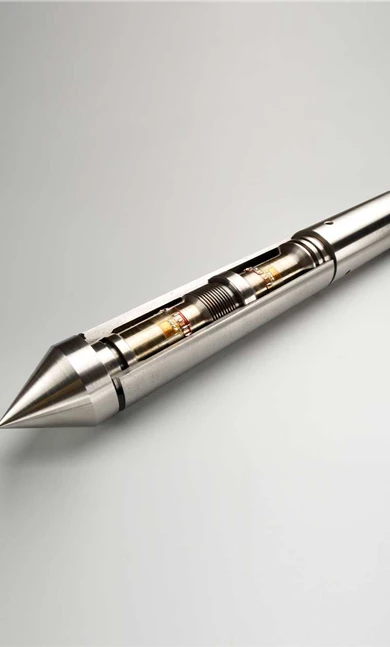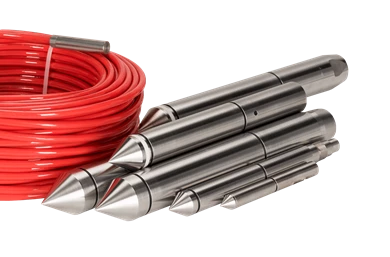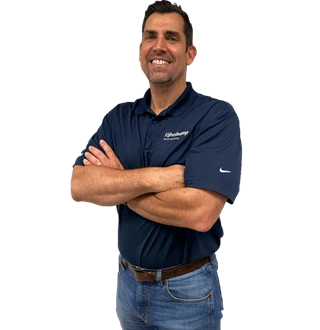


We provide a wide range of high-quality electrical cones to provide the user the most appropriate testing tool for a wide range of soil conditions.
The electrical cone contains temperature-compensated strain gauge transducers that measure the cone resistance as well as the sleeve friction and, if applicable, a pressure transducer to measure the pore water pressure (in either the u1, u2, or u3 position). The measuring range of these strain gauges and transducers can be varied to meet the user’s requirements.
A digital cone has a built-in analogue-to-digital conversion (32-bit resolution) and built-in cone ID with calibration factors, which eliminates the effects of user and system errors on the measurements. The cones can be supplied as compression cones, with independent load cells for the cone resistance and the sleeve friction, or subtraction cones; a more robust design and therefore more durable.
Wide range of options
The range of measuring ranges, load cell arrangements, sizes and pore pressure measuring locations mean we can provide the right cone for every project.
Variations
Available options for the electrical cones include:
Cone size
The choice of cone diameter is related to your soil type and circumstances. The 15 cm2 is most robust and more likely to pass through gravel, while the 10 cm2 is more sensitive, especially when paired with lower measuring range loadcells. There are also smaller cones, like the 5 cm2, 2 cm2, and even a 1 cm2 cone which is normally used for special applications or in laboratory settings.
Select your cone of choice, and please provide additional information about your requirements in the quote form to help us select the right cone for your application.

Need advice choosing the right product? Our specialist Mike is happy to help.